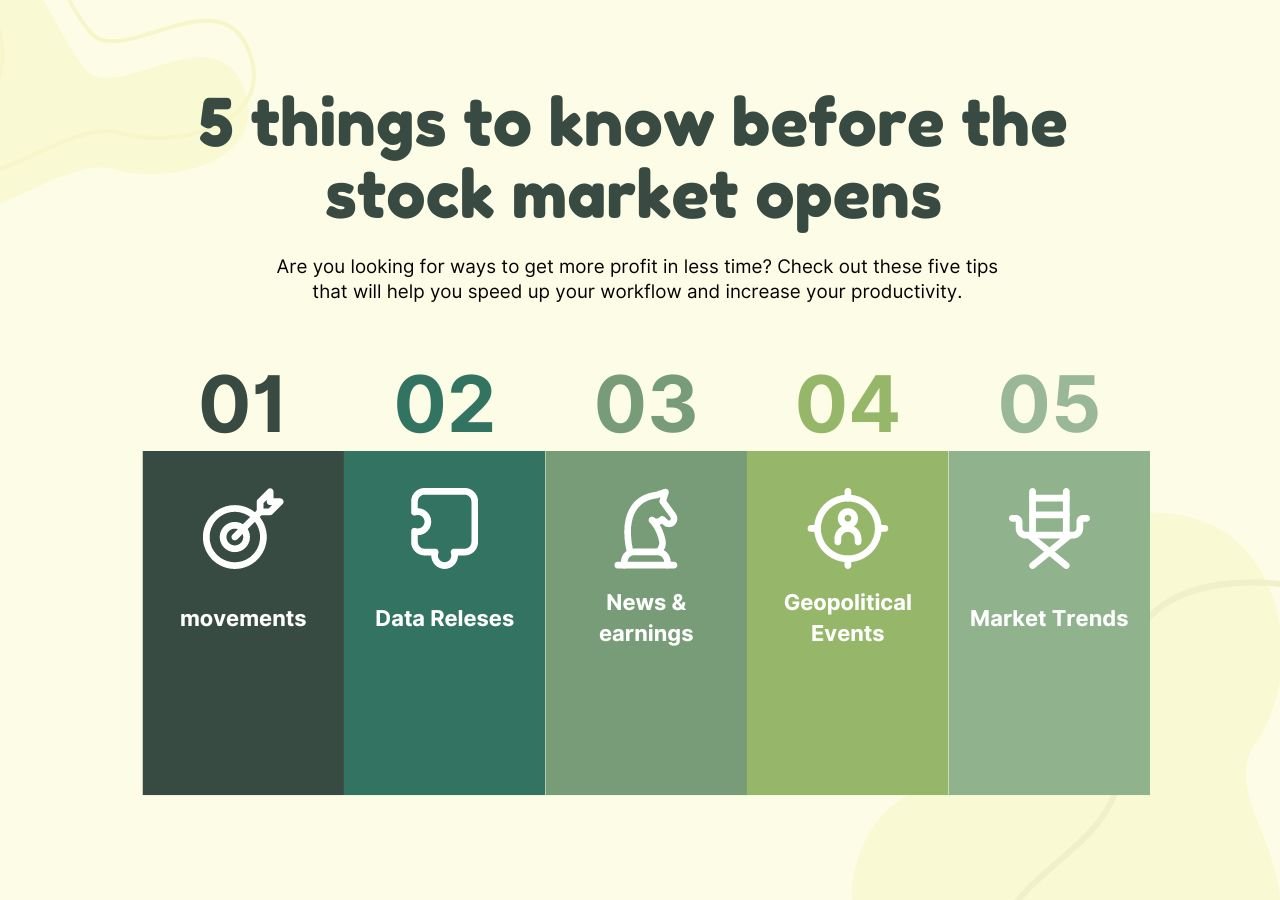Introduction
Investing in the stock market can be a thrilling yet daunting experience, especially if you’re an investor navigating the complexities of market movements. To help you start your trading day on the right foot, this article outlines the five crucial things you need to know before the stock market opens. Whether you’re a seasoned trader or a beginner, understanding these key factors can significantly impact your investment decisions.
Purpose of the Article
First and foremost, this article aims to equip you with essential information to make informed decisions as an investor. In a rapidly changing market environment, staying updated on the latest trends and news is crucial. By highlighting the key factors that influence market movements, we hope to provide a comprehensive guide that will enhance your trading strategy and boost your confidence.
Overnight Market Movements
Let’s begin with the overnight market movements, a critical indicator of how the domestic market might perform when it opens. Global markets, particularly in Asia and Europe, often set the tone for the day. For instance, a rally in Asian markets might indicate a positive start, while a slump could signal a cautious approach. Understanding these movements helps you anticipate market reactions and plan your trades accordingly.
Economic Data Releases
Transitioning to economic data releases, these indicators are pivotal in shaping market sentiment. Key economic data, such as unemployment rates and inflation figures, provide insights into the health of the economy. For example, a higher-than-expected unemployment rate might lead to a bearish market, while strong economic growth data could spur optimism. Keeping an eye on these releases allows you to adjust your trading strategies to align with the broader economic trends.
Corporate News and Earnings Reports
Next, corporate news and earnings reports are vital for investors looking to understand company-specific movements. Major announcements, such as quarterly earnings, mergers, and acquisitions, can have a profound impact on stock prices. For instance, a company reporting higher-than-expected earnings might see a surge in its stock price, whereas disappointing results could lead to a sell-off. By staying informed about these reports, you can make more strategic investment decisions.
Political and Geopolitical Events
Political and geopolitical events are another crucial aspect to consider. Events such as elections, trade talks, and international conflicts can significantly influence market stability and investor confidence. For example, a stable political environment might boost investor confidence, leading to a bullish market, while political turmoil could cause uncertainty and market volatility. Understanding the potential impacts of these events helps you navigate the market more effectively.
Market Trends and Analyst Predictions
Finally, keeping up with market trends and analyst predictions provides a strategic advantage. Technical analysis, current market trends, and insights from financial experts offer valuable information to guide your trading decisions. For instance, identifying bullish trends or recognizing potential market corrections can help you time your trades better and maximize your returns.
Conclusion
In conclusion, staying informed and proactive is key to successful investing. By understanding overnight market movements, economic data releases, corporate news, political events, and market trends, you can make well-researched decisions that enhance your trading strategy. We encourage you to stay updated, utilize this guide, and approach the stock market with confidence and knowledge.

